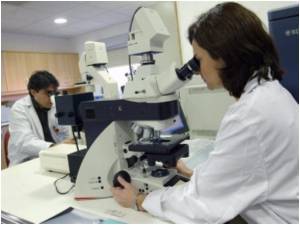
They can be inherited or arise anew, and are a common cause of disease.
The research team systematically analysed the prevalence of rare CNVs in almost 3500 people with intellectual disabilities between 2006 and 2010.
They found CNVs, which had arisen anew, as opposed to being inherited, in 227 people, meaning the prevalence was around twice as common in this group as among people with autism and three times as common as among those with asthma.
Further analysis to determine the parental origin of the CNVs in the 118 people for whom data were available, showed that 90 had come from the father, and that three quarters represented missing DNA sequences.
The researchers then divided people with CNVs into two groups - those with CNVs occurring in regions of the genome with highly repetitive DNA sequences, and those with CNVs occurring in non - repetitive DNA sequences.
Advertisement
A significant increase in the father's age was found in the group of CNVs in non-repetitive DNA sequences - which accounted for most CNVs - providing a crucial insight into the understanding of how and why disease - causing CNVs are formed, say the authors.
Advertisement
"In conclusion, our data provide for the first time convincing evidence that CNVs in intellectual disability are largely paternal in origin," they add.
The study has been published online in the Journal of Medical Genetics.
Source-ANI










